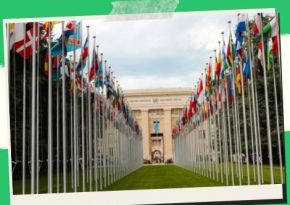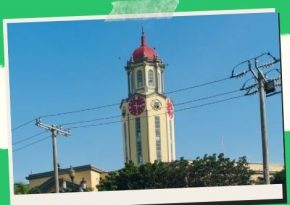
According to a former NAPC executive, the Philippines can yet end poverty.
Creating a national plan to systematically address the issue will help the Philippines reach the Sustainable Development Goal of eradicating poverty by 2030, according to a former executive of the National Anti-Poverty Commission (NAPC).
Former NAPC director John Laa stated during a televised Laging Handa briefing that the global goal is still reachable provided a NAPC Action Agenda is created and all development plans, whether local, regional or national, are based on this roadmap.
According to Laa, AmBisyon 2040, the government of the Philippines’ plan to abolish poverty in the nation by the year 2040 could depend on this.
“Tingin ko kaya natin ito kung ang National Anti-Poverty Commission, kung saan ang Pangulo ng bansa mismo ang siyang chairperson nito at lahat ng ahensiya ng gobyerno ay nandoon, lahat ng local government units ay nandoon, at ang 14 basic sectors ay
Laa, however, emphasized that President Joseph Estrada’s administration was the only time the Philippine government was able to create the action agenda.
After President Erap, there is still no National Anti-Poverty Commission Action Agenda, and even the NAPC, I’m sorry to say, still does not have an appointed secretary, he said. “After President Erap, hanggang sa ngayon po ay wala po tayong nagawang National Anti-Poverty Commission Action Agenda at kahit po ang NAPC sa ngayon, ako po ay
For the NAPC to begin developing the action plan to reduce poverty, he pleaded with President Ferdinand Marcos Jr. to designate a new lead convenor.
The Marcos government created an eight-point socioeconomic agenda to achieve its objectives under the Medium Term Fiscal Framework (MTFF).
According to the MTFF, the government wants to increase GDP by 6.5 to 7.5 percent in 2022, reduce poverty to 9 or ten percent by 2028, reduce the national government’s deficit-to-GDP ratio to 3% by that year, and reach a debt-to-GDP ratio of less than 60 percent by 2025.
The world is unlikely to achieve the objective of ending extreme poverty by 2030, according to the Poverty and Shared Prosperity study from the World Bank.
According to the study, there has been no improvement in the world’s efforts to end extreme poverty.
According to the report, “Covid-19 inflicted the largest blow to international efforts to reduce poverty since 1990, and the war in Ukraine threatens to make matters worse.”
According to the international organization, the epidemic contributed to the largest one-year increase in extreme poverty since global poverty monitoring was first conducted in 1990, dragging around 70 million people into it in 2020.
By the end of 2020, it was predicted that 719 million people would be living on less than $2.15 a day.
Save/Share this story with QR CODE
Disclaimer
This article is for informational purposes only and does not constitute endorsement of any specific technologies or methodologies and financial advice or endorsement of any specific products or services.
 Need to get in touch?
Need to get in touch?

We appreciate your reading. 
1.) 

Your DONATION will be used to fund and maintain NEXTGENDAY.com
Subscribers in the Philippines can make donations to mobile number 0917 906 3081, thru GCash.
3.) 
4.) 
AFFILIATE PARTNERS

World Class Nutritional Supplements - Buy Highest Quality Products, Purest Most Healthy Ingredients, Direct to your Door! Up to 90% OFF.
Join LiveGood Today - A company created to satisfy the world's most demanding leaders and entrepreneurs, with the best compensation plan today.

 Business, Finance & Technology
Business, Finance & Technology

 Business Technology, Finance Technology & Information Technology
Business Technology, Finance Technology & Information Technology





